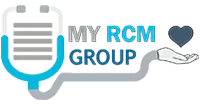
Medical billing is a complex process that involves collecting payments for medical services provided by healthcare providers. In this process, there are two types of collection strategies used by healthcare providers: hard and soft collections. Understanding the difference between these two strategies is crucial for medical billing professionals to ensure they collect payments in a timely and effective manner. In this article, we will discuss the difference between hard and soft collections in medical billing and how they affect healthcare providers and patients.
What are hard collections?
Hard collections refer to the process of collecting payment from patients who have not paid their medical bills within the timeframe specified in their payment plan. In this collection strategy, healthcare providers will send letters, make phone calls, and even pursue legal action to collect payments from patients who are delinquent in their payments. This is often the last resort for healthcare providers, as it can damage the patient-provider relationship and can be time-consuming and costly.
What are soft collections?
Soft collections, on the other hand, refer to the process of collecting payment from patients before their medical bills become delinquent. This collection strategy involves sending reminders and statements to patients who have not paid their bills on time. Soft collections are less aggressive than hard collections, and they are often used to prevent the need for legal action or other aggressive collection strategies.
How do hard and soft collections differ in their impact on healthcare providers and patients?
Hard collections can be time-consuming and costly for healthcare providers, as they may need to hire debt collectors or attorneys to pursue delinquent payments. This can also damage the patient-provider relationship, which is crucial in providing quality healthcare services. Patients pursued by hard collections may feel overwhelmed, ashamed, or embarrassed, which can negatively affect their health outcomes and overall well-being.
Soft collections, on the other hand, are a more gentle approach that can help healthcare providers maintain a positive relationship with their patients. By sending reminders and statements to patients who have not paid their bills on time, healthcare providers can improve their cash flow and reduce the risk of delinquent payments. Patients who receive soft collection reminders are more likely to pay their bills on time, which can help them avoid unnecessary stress and financial burden.
In conclusion, hard and soft collections are two distinct collection strategies used in medical billing. While hard collections can effectively collect delinquent payments, they can be costly and damaging to the patient-provider relationship. Soft collections, on the other hand, are a gentle approach that can help healthcare providers maintain positive relationships with their patients while improving their cash flow. It is important for medical billing professionals to understand the difference between these two strategies to effectively manage medical billing and ensure timely payments for healthcare services.
We at My RCM Group have a team of Collection Experts who will definitely help you with your business. Call Us Now: (844) 206-9726!
